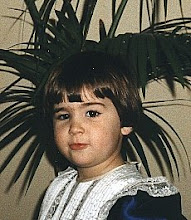The Arab–Israeli conflict spans roughly one century of political tensions and open hostilities, though Israel itself only was established in 1948. It involves the establishment of the Zionist movement and the subsequent creation of the modern State of Israel in territory regarded by the Pan-Arab movement as belonging to the Palestinians, be they Muslim, Christian, Druze or other, and by the Jewish people as their historical homeland.
For centuries, divided the Jewish people lived in several countries, especially in Europe, which is known as Diaspora. The coexistence of Jews with the rest of Europe was not always easy, especially the persecution and pogroms in Eastern Europe in the late nineteenth century was a determining period for the emergence and political equal, claiming statehood for all the Jewish communities scattered around the world.
In 1914 the Ottoman Empire decided to enter the First World War and the British government began to see the Zionist movement as a potential ally in a war that seemed to develop evil allies.
During the 20 years the number of Jews in Palestine increased significantly: in 1922 there were 83,790 of a total population of 752,048 in 1929 was 156,481 in a total population of 992,559, doubling its population in seven years.In 1984 Arafat consolidate his authority as leader of the Palestinian national movement was a year after causing a breach of the agreement with Jordan on Palestinian sovereignty in the West Bank. Israel began a major offensive in Lebanon and launched an air raid on PLO (Palestine Liberation Organization) headquarters in Tunisia three years later in the month of August, King Hussein of Jordan gave the Palestinians their rights on the West Bank. In November, the Palestinian National Council in Algiers proclaimed the state of Palestine and accept the UN resolution 242. There is a high immigration of Jews from the USSR (Union of Soviet Socialist Republics). A few years later in 1991, Iraqi missiles fell in February in Israel, which does not respond to the attack. Iraq was defeated in the Gulf War. The defeat of Iraq weakens the position of Arafat in the Palestinian liberation movement. After the Gulf conflict the Baker plan fails to refuse to Israel that the PLO represent the Palestinians and change land for peace. Five years later after new Hamas suicide bombings that caused 32 deaths. The following year in January an agreement is reached for the withdrawal of Israeli forces deployed in Hebron. A year later, in February the Israeli population collects gas masks and food, the shadow of the Gulf War two years after Israel agreed successive folds in the West Bank. Barak, Israeli prime minister, facing criticism for the concessions to the PNA. The following year Sharon wins the Israeli elections and becomes the new prime minister. For the transfer of power, Barak withdrew all its proposals. Sharon refuses to co-operation for a UN investigation. Israel bombards Palestinian positions.
Credits:
http://es.wikipedia.org/wiki/Conflicto_%C3%A1rabe-israel%C3%AD
Toñi
http://es.geocities.com/quierosabertodo/israel/index.html
http://2.bp.blogspot.com/_hfsinKEIibk/SYKqp5I6unI/AAAAAAAAAas/IIbNzVTK9ro/s1600-h/conflicto+israel-palestina






.gif)

 Particles
Particles.gif)
.gif)
.gif)
.gif)








No comments:
Post a Comment